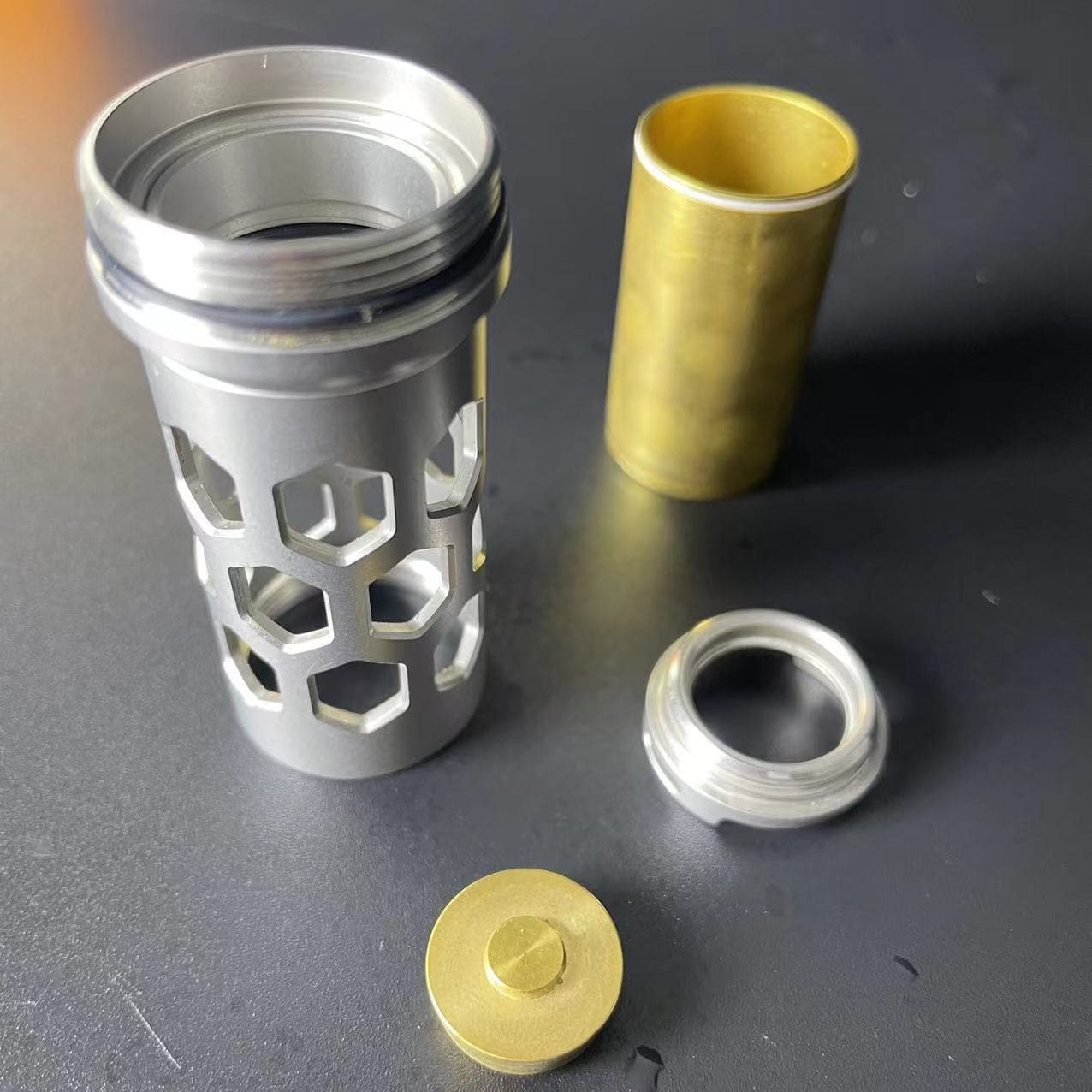Understanding CNC Machining for Flashlight Components

Flashlight Industry
The flashlight industry is heavily reliant on precision parts manufacturing to create high-quality components. CNC machining plays a crucial role in producing flashlight components with the required precision and accuracy. This process ensures that each part fits together accurately, contributing to the overall quality of the flashlight. Additionally, stringent quality control measures are essential for maintaining high standards throughout the production of flashlight components.
Quality Control: Quality control measures are vital in ensuring that every component meets the required standards for performance and durability.
Precision Manufacturing
Importance of Precision
In the realm of flashlight assembly, precision holds paramount importance. It is a critical factor in ensuring the optimal performance and durability of flashlights. The exact production of each component with high precision ensures that all flashlight parts fit together accurately, contributing to the overall quality and reliability of the product.
Utilization of Advanced Machinery
The achievement of precision in manufacturing flashlight components heavily relies on the utilization of advanced machinery. These cutting-edge machines are instrumental in ensuring accurate and high precision fabrication for flashlight components. Among these advanced processes, CNC machining stands out as a key method employed in achieving the required level of precision for flashlight components.
CNC Machining Role
CNC Machining Process
CNC machining, also known as computer numerical control machining, plays a pivotal role in the creation of intricate and precise flashlight components.
This automated machining process utilizes pre-programmed computer software to dictate the movement of machinery and tools, ensuring consistent and accurate production of flashlight parts.
Advantages of CNC Machining
One of the key advantages of CNC machining is its ability to accommodate complex designs and tight tolerances in flashlight components.
The high precision offered by CNC machines allows for the production of intricate parts with minimal margin for error, ensuring superior quality and performance.
Additionally, CNC machining offers high repeatability and efficiency in producing flashlight parts, contributing to cost-effectiveness and streamlined manufacturing processes.
These advanced capabilities make CNC machining an indispensable process in the precision manufacturing of flashlight components.
Quality Control
Importance of Quality Control
Maintaining high standards in flashlight component production is heavily reliant on the implementation of quality control measures. Stringent quality control is crucial for ensuring the reliability and performance of flashlight components. By adhering to rigorous quality assurance protocols, manufacturers can uphold the integrity of their products and meet the expectations of consumers.
Inspection and Testing
The flashlight components undergo rigorous inspection and testing procedures to guarantee adherence to stringent quality standards. This comprehensive quality management process includes material testing, dimensional checks, and performance assessments. Through meticulous product inspection, manufacturers can identify any deviations from the specified requirements and take corrective actions to maintain the high quality of their flashlight components.
Materials Used
Commonly Used Materials
In the manufacturing of flashlights, aluminum and stainless steel are the commonly used materials for producing high-quality components. These materials are favored for their durability, corrosion resistance, and overall performance characteristics. Aluminum is known for its lightweight nature, making it an ideal choice for portable flashlight designs. On the other hand, stainless steel offers exceptional strength and robustness, ensuring the longevity of flashlight components even in demanding conditions.
The selection of materials significantly impacts the functionality and reliability of flashlight components. By choosing the appropriate material based on specific requirements such as strength, weight, and corrosion resistance, manufacturers can ensure that the resulting components meet the desired performance standards.
Material Selection Considerations
When considering materials for flashlight component manufacturing, several factors come into play during the selection process. The strength of the material directly influences its ability to withstand stress and impact, which is crucial for ensuring the durability of flashlight components. Additionally, weight considerations are essential as lighter materials contribute to enhanced portability without compromising structural integrity. Furthermore, corrosion resistance is imperative to maintain the longevity of flashlight components, especially when exposed to harsh environmental conditions.
Careful consideration of these factors guides manufacturers in selecting materials that align with the specific requirements for producing reliable and high-performance flashlight components.
Flashlight Industry
Understanding the significance of CNC machining in the production of flashlight components provides valuable insights into the meticulous manufacturing process. The torch industry relies heavily on precision parts manufacturing to ensure the creation of high-quality components. Precision manufacturing and stringent quality control measures are crucial for producing reliable and high-performance flashlight components. Additionally, the careful selection of materials and adherence to quality standards play an essential role in meeting the demands of the flashlight industry.
See Also
Comprehending Anodization of CNC Machined Aluminum Heat Sink Components
Grasping Tolerances and Surface Finish in CNC Machining POM Components
Insight into Aluminum Alloy 7075: CNC Machining and Applications
Effective CNC Machining Solutions for Precise Manufacturing
Top Review of 2024's Best Benchtop CNC Mill for RC Enthusiasts
About US
Follow Us
Your prototype holds unparalleled significance, and we deeply value its uniqueness. Collaborating with you during the preparation phase for running your prototype or parts is a commitment we gladly embrace. Whether it's a single part or a complex assembly, we are dedicated to selecting the optimal tools and pathways to bring your envisioned product to life.
At Precision Fab CNC Machining, we specialize in producing parts for prototypes, short runs, and high-volume production. Our prototyping machine capabilities extend across metal, plastic, and wood machining, with welding fabrication services available to complement and finalize your prototype if required.
Address
Address: Room320 10F, Building A,Nanshan international building, Dayawan District, Huizhou, Guangdong, 516001 China
Contacts
billy@timaycnc.com

